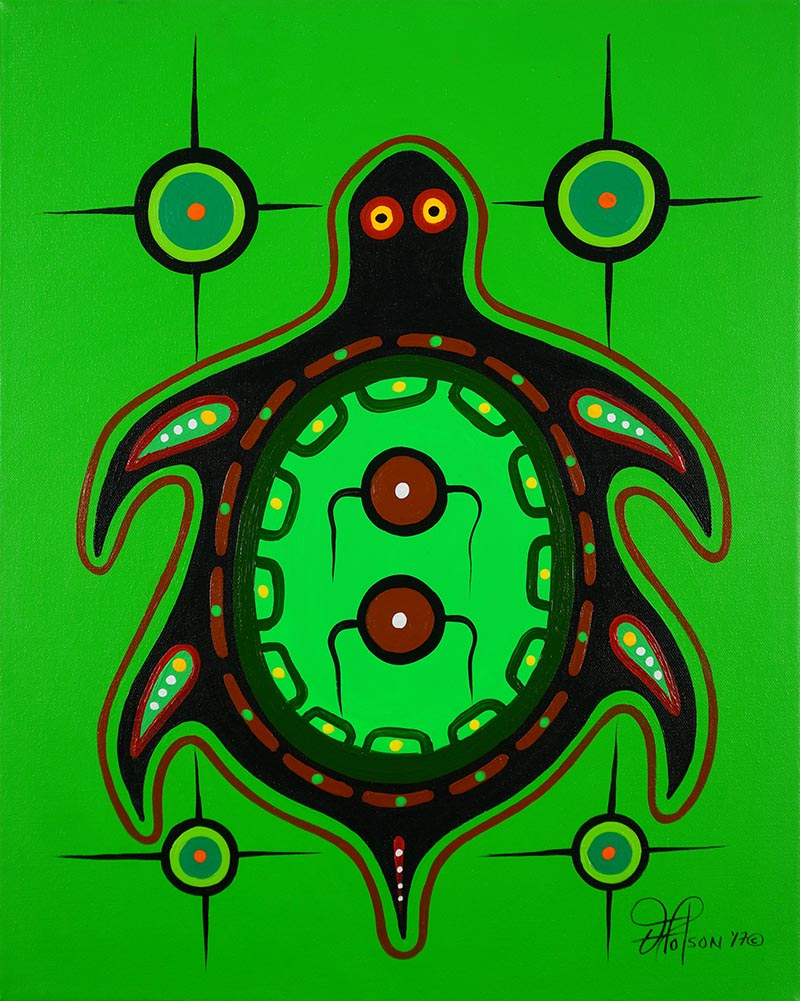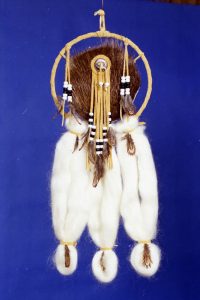Nature in the imagination and spirituality of First Nations

Turtle (Tortue). By Frank Polson, 2017. Frank Polson is painting animals which are symbols of Algonquin spirituality. For many Indigenous First Nations, the turtle symbolizes the nourishing Earth, responsible for creating the world.
The Algonquins, the first inhabitants of the territory, were completely at home in the forest. To find their way, they used the stars, the positioning of the trees and even the position of the moss at the base of the trees. The forest was the source of their food and lodging and was also an intricate part of their spirituality.
Their view of nature was deep-rooted in spirituality. Creation and human-beings, being a part of the creation are of divine origins and deserve to be treated with respect. Nature is the mother, a nurturer, she is as much a part of human-beings as human-beings, animals and plants are a part of her. The turtle is the representation of the universe, upholding the world and humanity. It is a sacred animal, present in the stories about the creation of the world, symbolizing mother-earth, also designated as the Great Turtle.
Their vision of the world is composed of an aspect that is visible and one that is invisible. Also, spirits were an integrated part of their daily lives. Animals and objects have a soul. To preserve world order and ensure successful hunting, it was important to show respect towards nature. It was considered that the animals killed to provide nourishment for humans chose to offer themselves to those who were worthy. It was important to preserve this relationship by thanking the animals for their sacrifice and treating the remains with respect. For example, when a hunter kills a bear, he eats the heart to draw in the strength and intelligence of the animal. The bear’s fat had several uses: as medicine, as mosquito repellent, to protect the skin and also for a person to carry the strength of this great animal with them.
Interview with Roger Wylde
Roger Wylde is an accomplished artist from Pikogan, known for his visual art, traditional Abitibiwinni art, as well as his involvement in theatre and film. In this video, he’s speaking about the pow-wow, a traditional gathering of a social and spiritual nature, and of its significance today. Pow-wow has become festivals open to everyone and allows Aboriginals to carry on and share cultural heritage.



